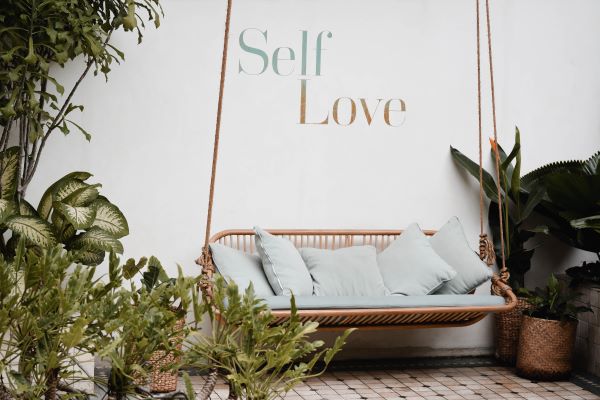Self-Care: Moving Beyond the False Promises of a Quick Fix

Photo by Content Pixie on Unsplash
Life is busy. The world is chaotic. There is too much to do and not enough hours in the day. There is always something or someone to take care of. Engaging in a self-care routine can feel like yet another thing on your mile long to-do list.
If you’ve ever felt resentful in response to being reminded to include some you-time in your busy schedule, you are not alone. The suggestion of prioritizing a self-care routine can sometimes feel more burdensome than beneficial.
The words “self-care” have become a routine part of our culture, originally introduced as an antidote to the effects of an excessively demanding life.
So why is practicing self-care easier said than done?
It seems silly to think that taking some time to relax and breathe, adding yoga to your daily routine, or getting a pedicure wind up feeling like chores. Isn’t the intention to help you to escape and decompress for a while?
Sure. But realistically, adding self-care into the mix can increase the likelihood of burnout, rather than treating it, when it’s perceived as a task. This is the antithesis of what it is meant to do.
Although these things might feel good momentarily, they’re time-limited. Further, they are unlikely to facilitate change on a fundamental level. After the initial pleasure dissipates, you’re right back to being stressed and overwhelmed.
The irony is that this can lead to you feeling like nothing works; like you’re a failure. The whole idea of it can feel like a false promise. Sadly, this is more common than you may believe.
I initially chose to write about self-care to remind readers of the importance of taking care of yourself during times of increased stress and burnout. In the process of writing the piece, I quickly found myself feeling that it was lacking something genuine. The words I was writing felt empty somehow; similar to the way many women feel when advised to practice self-care.
In my search for something more meaningful to offer, I was directed to the work of author and psychiatrist Dr. Pooja Lakshmin. Through her work in women’s mental health, Dr. Lakshmin began to recognize recurrent patterns of stress, burnout, and a sense of failure and isolation in many of her patients (a similar pattern we also see in our work).
This eventually led her to write the recently published book Real Self-Care. In it, Dr. Lakshmin addresses the familiar feelings many women share in response to the false promise of self-care. From a broad cultural perspective, she prioritizes equity and acknowledges the unrealistic expectations and responsibilities placed upon women, and the subsequent negative impacts on their mental and emotional health.
This was the missing content I was looking for and I’m thrilled to share what I learned from my research into Dr. Pooja Lakshmin’s book.
Real vs “Faux” Self-Care
To start, she distinguishes the difference between what she describes as real and faux self-care. She points out that an idea originating in radical feminism has evolved into a multibillion-dollar industry.
Worse, what is now considered “self-care” tends to be trite short-lived solutions to long-term, systemic problems. The ease and benefit of practicing self-care becomes an illusion that oftentimes results in a lot of frustration and feelings of inadequacy. This is what Dr. Lakshmin refers to as “faux self-care”.
On the other hand, real self-care, according to her, is about shifting the focus to long-term, internal work that acknowledges systemic and complex issues, like over-working, oppression, marginalization, and child-rearing.
This doesn’t mean that regular doses of resting or pampering should be left behind. These ways of taking care of yourself are also valuable.
The important thing to keep in mind is that they are not solutions to whatever ails you. And, you are not a failure just because a bubble bath and a massage didn’t make the stress of your critical and over-bearing boss disappear.
The following are some of the fundamentals of the long-term internal work that comprise deeply caring for yourself, according to Dr. Lakshmin.
Setting boundaries
Most understand the negative impact of not setting boundaries and how this can lead to resentment and burnout. However, many find that no matter how tough the consequences, setting boundaries can feel impossible!
Typical self-care culture talks about boundaries as though it’s a life hack and you just need to figure out how to do it right. There is a risk of feeling easily discouraged if the expectation is that it’s easy; if you struggle something must be wrong with you.
That’s not the case! The truth is that setting boundaries takes real work, practice and repetition. The energy it takes to say “no,” set limits, risk conflict is well worth it though. It is a key piece to taking care of yourself. Setting boundaries is about listening to and validating your needs.
Self-compassion
Pay attention to the way you talk to yourself. That inner critic chirping inside your head all day can be really mean!
Constant criticism and shame are not about care. They are forms of punishment.
Think about shifting that internal dialogue towards something more compassionate, as you would with someone you care about. For instance, if you didn’t set a boundary with a co-worker like you wish you had, instead of saying “You’re so stupid”, instead you can say “It’s hard to do something different and conflict is super uncomfortable! At least you recognize that it was important to set a boundary there – that’s growth!”
Aligning your values
This is about evaluating your decisions, large and small, and asking yourself if your choices feel in alignment with what is genuinely important to you. If they don’t, then it’s worthwhile considering what you can change or do differently. In other words, are your actions and decisions in alignment with your core values?
Of course, this doesn’t mean that you need to suddenly change everything about your life. But looking at the big decisions, your career, where you choose to live, or what relationships you are in, is a great place to start. Life is in a constant state of flux, and having a regular practice of stepping back every so often to see if things still make sense is a long-term way to look out for yourself, and stay connected to the things you value the most.
Exercising power
Your sense of agency can get lost in the maze of working for someone else, being a caregiver, or any other circumstance that leads to feeling a loss of self. Reminding yourself to exercise your own power and make personal changes where and when you can is empowering. It helps you to gain a sense of control over your life and your decisions, ultimately becoming a protective factor against the common risks of anxiety and depression.
Understanding real vs. “faux” self-care, as Dr. Lakshmin terms it, is about facilitating a paradigm shift in the broader conversation about self-care. True self-care is not so much about going to the salon as it is about a constant practice of self-reflection, evaluation and acceptance of the fact that life involves some discomfort. You can build a life of meaning and purpose that is capable of sustaining that discomfort; not by temporarily fending it off with quick fixes, but by making choices that build long term resilience and honor that deeper you.









